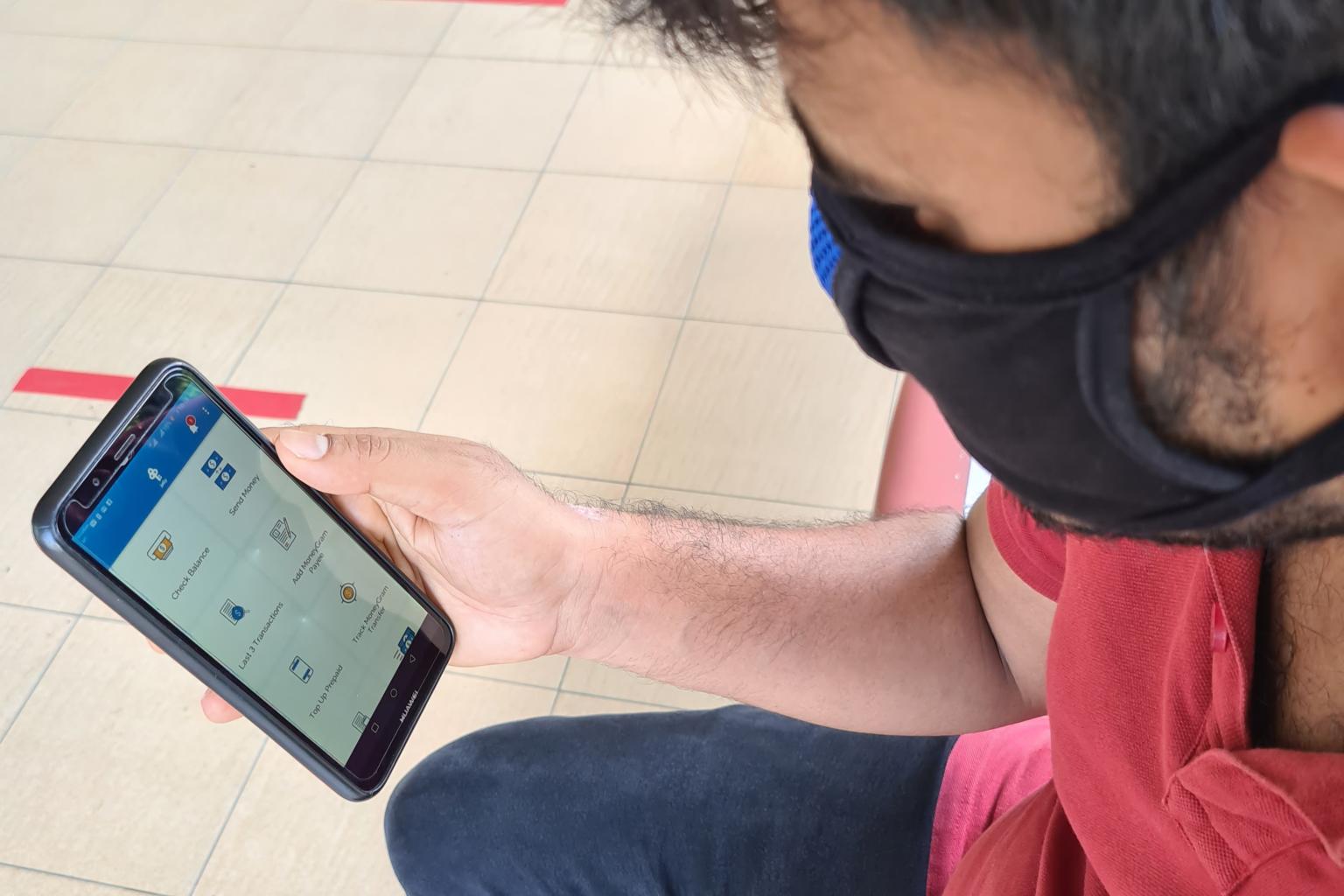Covid-19 outbreak has hastened shift to cashless world for Singapore's migrant workers
Sign up now: Get ST's newsletters delivered to your inbox

A migrant worker using POSB's contactless banking service.
PHOTO: POSB
SINGAPORE - Singapore's accelerated shift to a cashless society amid the Covid-19 pandemic has rippled out into the world of the migrant workers, who, being cooped up in their lodgings and dormitories, are being introduced to digital banking in order to get paid or remit money home.
POSB opened about 41,000 bank accounts for migrant workers in April, more than three times its usual monthly sign-ups of 11,000 to 13,000.
The influx was prompted by a Manpower Ministry advisory sent last month to employers of foreign workers living in dormitories, saying their employees' salaries have to be paid electronically.
Also, other common transactions of these workers, such as topping up prepaid phone cards and remitting money home, can now be done in a contactless fashion.
POSB said on Wednesday (May 13) about 500,000 migrant workers have opened accounts with the bank.
This is about two-thirds of the work permit holders in Singapore, excluding foreign domestic workers, and the bank aims to rope in the remaining 250,000 by the end of the year.
DBS head of secured loans and deposits P'ing Lim said migrant workers prefer using cash to make payments and most of them are paid their salaries in cash.
"We learnt, when the workers were quarantined during the circuit breaker period, about 50,000 could not collect their salaries because they did not have bank accounts. We view this as a basic banking service," she added.
POSB also has an app, in five languages, for the workers,
Called Jolly, it allows them to perform digital banking, including checking their account balance and paying bills by sending an SMS to a POSB number to do it.
The bank's operations are also integrated into the Manpower Ministry's work permit portal.
Construction supervisor Rana Shohel, who has been working in Singapore for 11 years, signed up for a POSB account six months ago.
The 30-year-old uses the app to send money to his family in Bangladesh, and said it has given him peace of mind as his stay-home order does not allow him to leave his dormitory in Sungei Tengah.
"Before, I sent cash at a Western Union remittance counter in Mustafa Centre. Now, it is much easier, especially since I cannot go out," he added.
The convenience of Jolly has convinced him to stick with POSB even when he is able to go out again, as he does not have to travel and queue for a long time to remit money home. he said.
DBS said remittance transactions for POSB payroll accounts in April has soared 45 per cent compared with the previous month.
Before the pandemic, migrant workers usually take two to three years to be comfortable enough to switch to digital banking, said Ms Lim.
"We hope digital banking will become a new normal for our migrant workers now that they have seen their families receive the money this way," she added.
Meanwhile, banks say they need to overcome a common problem among these workers.
Often, their prepaid mobile numbers are recycled among other migrant workers, leading to issues with the SMS verification needed to complete many digital banking transactions.
Another major change is to involve employers of migrant workers at a deeper level, said DBS head of consumer banking group (Singapore) Jeremy Soo.
Before the Covid-19 outbreak, banks reached out to workers individually through the Manpower Ministry to educate and provide them with banking services.
"Post-Covid-19, we are likely to see a big change in how employers have to manage the administration of their workers, including making sure the workers have access to banking services," Mr Soo added.


